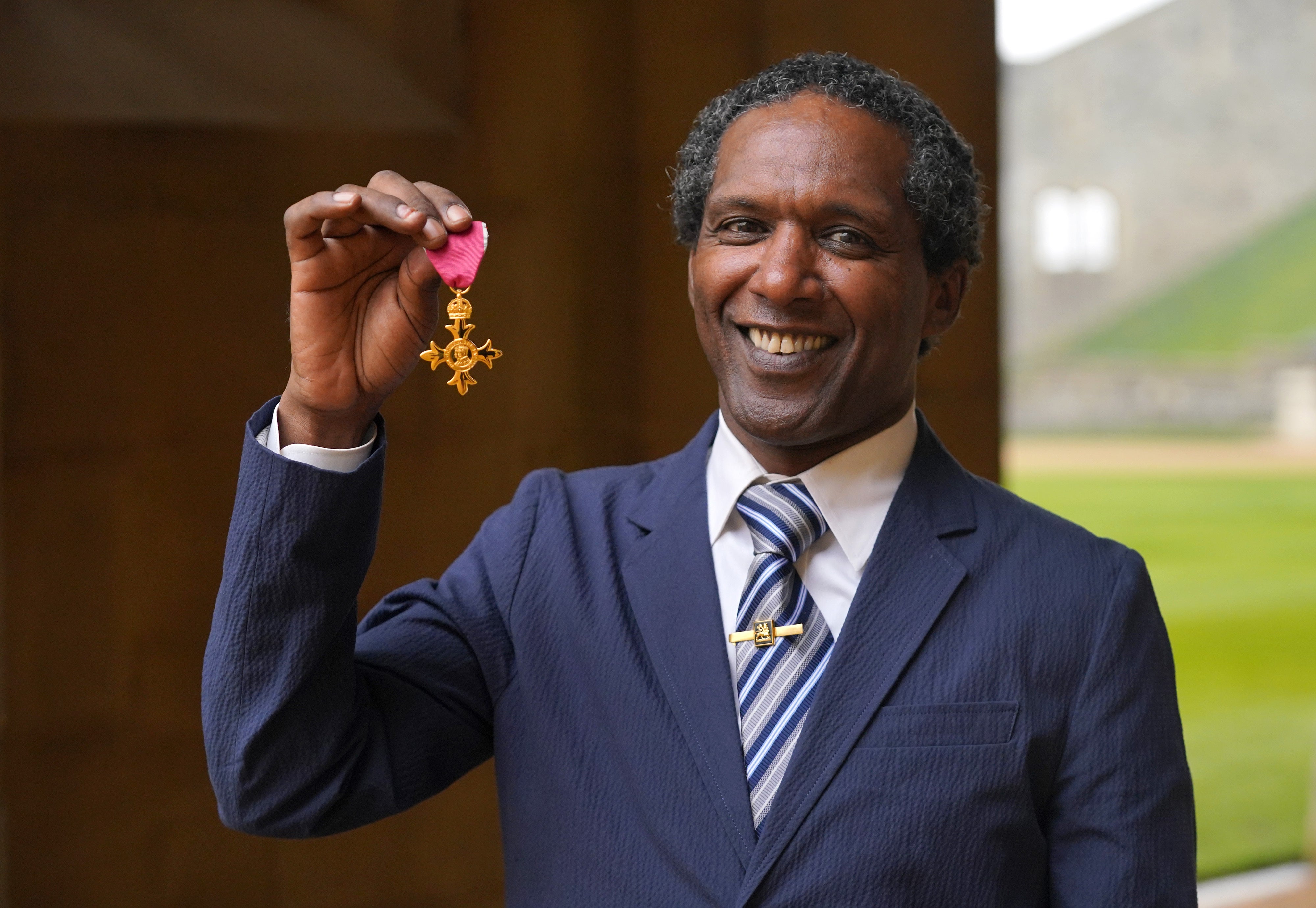Lemn Sissay: My OBE is for younger self who overcame ‘dehumanising’ time in care
Mr Sissay detailed his experiences in the British care system in his autobiography of his early life – My Name Is Why.

Poet Lemn Sissay says he felt obliged to accept his OBE because the award honours his younger self who overcame a “dehumanising” time in care.
Mr Sissay detailed his experiences in the British care system in his autobiography of his early life – My Name Is Why.
He shared the abuse he suffered during his formative years in the one-off show The Report, based on a psychologist’s report on his mental health struggles as a result of his upbringing, at the Royal Court.
After receiving his honour for services to literature and charity from the Prince of Wales, the poet and playwright said: “If I had said to him that one day you will be in Windsor Castle to receive an OBE from Prince Charles, I would never have believed that kind of magical story – almost fairy tale – would happen.”
He added: “If you can go to that boy – who lost his family, who left children’s homes at 18 years of age and didn’t know anybody for longer than a year at that age and had spent all of those Christmases alone – if you were going to say to that child that, ‘In your adulthood you are going to be honoured for what it is that you do and who it is that you are but you have got to turn it down…’
“I just could not do that to him.
“This is a way of being able to honour service and what you were born to be. I was born to be a poet.
“The service is the work (I have done) for care leavers and it has come from my own experience.”
Mr Sissay was born on May 21 1967 to an Ethiopian mother shortly after she moved to England to study. He was taken into long-term foster care in Wigan and named Norman Greenwood.
After being reunited with his birth mother aged 18, she told him he had been named Lemn, meaning “why” in Ethiopia’s official language of Amharic.
He learned his birth mother had made strenuous albeit unsuccessful efforts to reclaim him.
There was a 34-year battle with Wigan Council to get hold of his records and a settled court case against the authority over his treatment.
Mr Sissay said: “When people get these awards, they usually say, ‘I can not wait to tell my mum or dad because that will make them proud’.
“I did not have that and that is a direct result of my story – but that is just the way it is and it has an even more profound effect upon me in lieu of family.”
He is keen to see what comes of the upcoming Independent Review of Children’s Social Care in England, which was set up to ensure youngsters get the support they need.
Mr Sissay said: “It is a big deal. It is really important for me to be able to represent all the young people who have been in care so they think, ‘I can do that’.
“They can think, ‘I can be a lawyer, or a doctor, a hairdresser, or just go where he has gone’.
“It is a wonderful thing to be recognised as somebody who has got my kind of past.”
Mr Sissay’s first book of poems, Tender Fingers In A Clenched Fist, was published when he was 21 and sold in pubs, at political marches and anywhere he could stand and perform.
In 1995, he made a BBC documentary, Internal Flight, about his life.
His one-man show, Something Dark, detailed how he was given up as a baby.
The drama was adapted for BBC Radio Three in 2006, winning the UK Commission for Racial Equality’s Race in the Media Award.
An MBE came in the 2010 New Year Honours list, while Mr Sissay also won the 2019 PEN Pinter Prize and is chancellor of the University of Manchester.
Bookmark popover
Removed from bookmarks